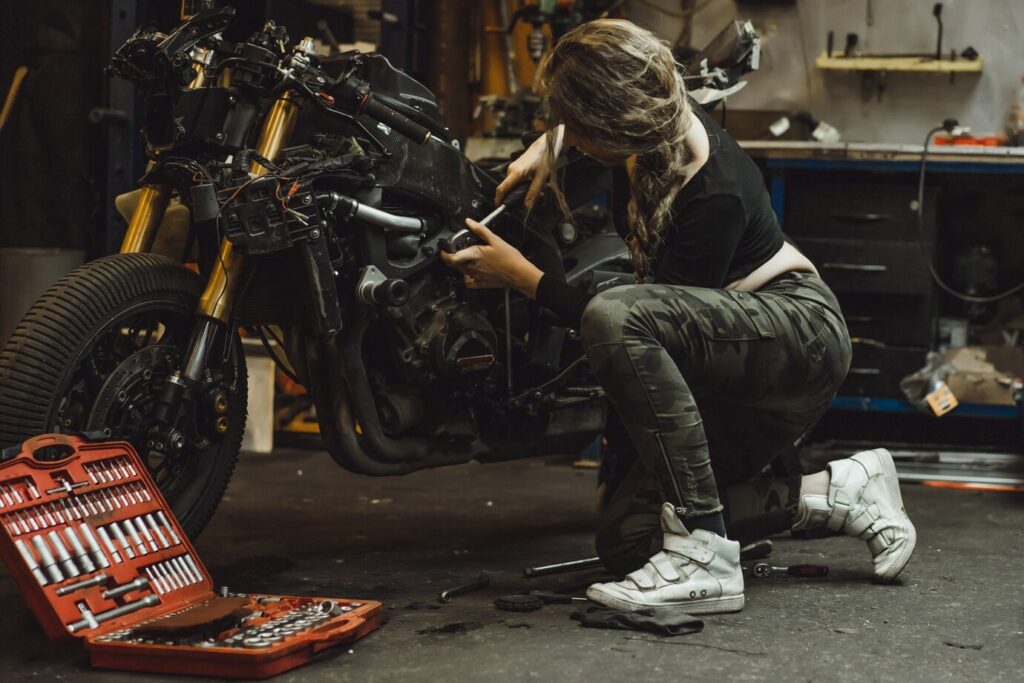Motorcycle shops play a crucial role in the biking community, serving enthusiasts and casual riders alike. Motorcycle shops offer a variety of services, including sales of new and used motorcycles, repairs, and essential maintenance. With numerous models and brands available, finding the right motorcycle can be an exciting journey, whether for commuting or hitting the open road.

In recent years, the motorcycle industry has seen a rise in specialized shops, each catering to different needs and preferences. From Harley Davidson customization at places like J & R Cycle to diverse inventories at larger dealerships, customers have plenty of options. The atmosphere in these shops is often welcoming, aiming to provide both valuable products and knowledge to riders.
Furthermore, motorcycle shops contribute significantly to the local economy while fostering a sense of community among riders. They often host events and group rides, enhancing the overall experience for bikers. The dedication of these shops to customer service and quality products keeps the spirit of motorcycling alive and thriving.
Key Takeaways
- Motorcycle shops provide sales, service, and community for riders.
- Specialized shops cater to various biking preferences and styles.
- Customer experience and local events enhance rider engagement.
History of Motorcycle Shops
Motorcycle shops have played a crucial role in the development of motor cycling culture. They began as simple places for repairs and sales, evolving into essential hubs for enthusiasts. The history shows how these shops adapted to changes in technology and consumer needs over time.
Early Beginnings and Evolution
The first motorcycle shops appeared in the early 1900s. They mainly focused on selling bikes and providing repairs. Some of the earliest brands included Indian Motorcycles, founded in 1901, and Harley-Davidson, established in 1903. These shops quickly became popular as the motorcycle gained traction among the public.
By the 1940s, motorcycle shops began to take on more significance. With World War II, demand surged for military motorcycles, pushing manufacturers and shops to innovate. Shops like Moore & Sons Motorcycles, opened in 1964, showcased various motorcycle brands and became landmarks in their communities.
Impact of Technology on Motorcycle Retail
As motorcycle technology advanced, shops had to adapt. The development of specialized parts and accessories changed the landscape of motorcycle retail. Shops began offering more than just sales; they provided customized services to meet individual customer needs.
The rise of online sales introduced new challenges. Many traditional shops expanded their services to include online platforms. By doing so, they maintained customer loyalty while reaching a broader audience. This shift also encouraged shops to create communities through events, riding clubs, and social media, enhancing the customer experience beyond mere transactions.
Types of Motorcycle Shops
Motorcycle shops come in different forms, each serving unique purposes for riders. Understanding these types will help buyers choose the right shop for their needs.
Dealerships
Dealerships are authorized sellers of specific motorcycle brands. They typically offer a range of new and used motorcycles from manufacturers like Harley-Davidson, Honda, and Yamaha.
These shops often provide services such as financing options, trade-ins, and warranties. Many dealerships have a skilled service department for repairs and maintenance, ensuring that customers have access to original parts and expert technicians.
Dealerships can be more expensive than other types of shops due to brand overhead costs. Buyers should consider visiting multiple dealerships to compare prices and services.
Independent Retailers
Independent retailers are small, locally-owned motorcycle shops. They often sell both new and used motorcycles, including parts and accessories. These shops may have a more personal atmosphere where staff know their customers by name.
Independent retailers usually focus on customer service and community engagement. They may offer repairs and maintenance at competitive prices, often providing a wider variety of aftermarket parts than dealerships.
Customers may find that these shops have a more laid-back approach compared to larger dealerships. This type of shop can be an excellent choice for personalized service and unique motorcycle options.
Specialty Shops
Specialty shops focus on specific types of motorcycles or services. They might cater to vintage bikes, racing motorcycles, or custom builds. These shops are often staffed by experts who share a passion for their specialty, providing insight and advice to customers.
Specialty shops may offer custom modifications, enhancing performance or aesthetics. Some may also host events and gatherings for enthusiasts, fostering a strong community among riders.
While these shops can provide niche expertise, they may have limited inventory. Customers should seek specialty shops when looking for specific parts or customized service that standard retailers do not offer.






